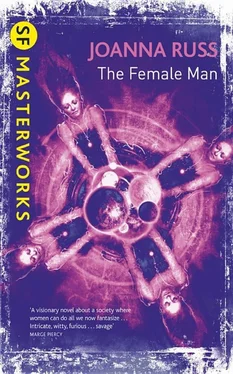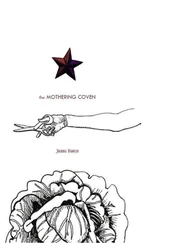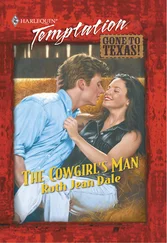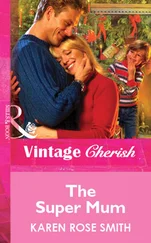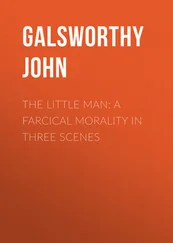JE: Let them read. Can’t they read?
(There was a moment’s silence. Then the M.C. spoke.)
MC: Our social scientists as well as our physicists tell us they’ve had to revise a great deal of theory in light of the information brought by our fair visitor from another world. There have been no men on Whileaway for at least eight centuries—I don’t mean no human beings, of course, but no men—and this society, run entirely by women, has naturally attracted a great deal of attention since the appearance last week of its representative and its first ambassador, the lady on my left here. Janet Evason, can you tell us how you think your society on Whileaway will react to the reappearance of men from Earth—I mean our present-day Earth, of course—after an isolation of eight hundred years?
JE (She jumped at this one; probably because it was the first question she could understand): Nine hundred years. What men?
MC: What men? Surely you expect men from our society to visit Whileaway.
JE: Why?
MC: For information, trade, ah—cultural contact, surely. (laughter) I’m afraid you’re making it rather difficult for me, Miss Evason. When the—ah—the plague you spoke of killed the men on Whileaway, weren’t they missed? Weren’t families broken up? Didn’t the whole pattern of life change?
JE (slowly): I suppose people always miss what they are used to. Yes, they were missed. Even a whole set of words, like “he,” “man” and so on—these are banned. Then the second generation, they use them to be daring, among themselves, and the third generation doesn’t, to be polite, and by the fourth, who cares? Who remembers?
MC: But surely—that is —
JE: Excuse me, perhaps I’m mistaking what you intend to say as this language we’re speaking is only a hobby of mine, I am not as fluent as I would wish. What we speak is a pan-Russian even the Russians would not understand; it would be like Middle English to you, only vice-versa.
MC: I see. But to get back to the question —
JE: Yes.
MC (A hard position to be in, between the authorities and this strange personage who is wrapped in ignorance like a savage chief: expressionless, attentive, possibly civilized, completely unknowing. He finally said): Don’t you want men to return to Whileaway, Miss Evason?
JE: Why?
MC: One sex is half a species, Miss Evason. I am quoting (and he cited a famous anthropologist). Do you want to banish sex from Whileaway?
JE (with massive dignity and complete naturalness): Huh?
MC: I said: Do you want to banish sex from Whileaway? Sex, family, love, erotic attraction—call it what you like—we all know that your people are competent and intelligent individuals, but do you think that’s enough? Surely you have the intellectual knowledge of biology in other species to know what I’m talking about.
JE: I’m married. I have two children. What the devil do you mean?
MC: I—Miss Evason—we—well, we know you form what you call marriages, Miss Evason, that you reckon the descent of your children through both partners and that you even have “tribes"—I’m calling them what Sir———— calls them; I know the translation isnt perfect—and we know that these marriages or tribes form very good institutions for the economic support of the children and for some sort of genetic mixing, though I confess you’re way beyond us in the biological sciences. But, Miss Evason, I am not talking about economic institutions or even affectionate ones. Of course the mothers of Whileaway love their children; nobody doubts that. And of course they have affection for each other; nobody doubts that, either. But there is more, much, much more—I am talking about sexual love.
JE (enlightened): Oh! You mean copulation.
MC: Yes.
JE: And you say we don’t have that?
MC: Yes.
JE: How foolish of you. Of course we do.
MC: Ah? (He wants to say, “Don’t tell me.")
JE: With each other. Allow me to explain.
She was cut off instantly by a commercial poetically describing the joys of unsliced bread. They shrugged (out of camera range). It wouldn’t even have gotten that far if Janet had not insisted on attaching a touch-me-not to the replay system. It was a live broadcast, four seconds’ lag. I begin to like her more and more. She said, “If you expect me to observe your taboos, I think you will have to be more precise as to exactly what they are.” In Jeannine Dadier’s world, she was (would be) asked by a lady commentator:
How do the women of Whileaway do their hair?
JE: They hack it off with clam shells.
“Humanity is unnatural!” exclaimed the philosopher Dunyasha Bernadetteson (A.C. 344—426) who suffered all her life from the slip of a genetic surgeon’s hand which had given her one mother’s jaw and the other mother’s teeth—orthodontia is hardly ever necessary on Whileaway. Her daughter’s teeth, however, were perfect. Plague came to Whileaway in P.C. 17 (Preceding Catastrophe) and ended in A.C. 03, with half the population dead; it had started so slowly that no one knew about it until it was too late. It attacked males only. Earth had been completely re-formed during the Golden Age (P.C.300-ca. P.C.180) and natural conditions presented considerably less difficulty than they might have during a similar catastrophe a millennium or so earlier. At the time of The Despair (as it was popularly called), Whileaway had two continents, called simply North and South Continents, and a great many ideal bays or anchorages in the coastline. Severe climatic conditions did not prevail below 72° S and 68° N latitude. Conventional water traffic, at the time of the Catastrophe, was employed almost exclusively for freight, passenger traffic using the smaller and more flexibly routed hovercraft. Houses were self-contained, with portable power sources, fuel-alcohol motors or solar cells replacing the earlier centralized power. The later invention of practical matter-antimatter reactors (K. Ansky, A.C. 239) produced great optimism for a decade or so, but these devices proved to be too bulky for private use. Katharina Lucyson Ansky (A.C. 201-282) was also responsible for the principles that made genetic surgery possible. (The merging of ova had been practiced for the previous century and a half.) Animal life had become so scarce before the Golden Age that many species were re-invented by enthusiasts of the Ansky Period; in A.C. 280 there was an outbreak of coneys in Newland (an island off the neck of North Continent), a pandemic not without historical precedent. By A.C. 492, through the brilliant agitation of the great Betty Bettinason Murano (A.C. 453-A.C. 502) Terran colonies were re-established on Mars, Ganymede, and in the Asteroids, the Selenic League assisting according to the Treaty of Mare Tenebrum (A.C. 240). Asked what she expected to find in space, Betty Murano made the immortal quip, “Nothing.” By the third century A.C. intelligence was a controllable, heritable factor, though aptitudes and interests continued to elude the surgeons and intelligence itself could be raised only grossly. By the fifth century, clan organization had reached its present complex state and the re-cycling of phosphorus was almost completely successful; by the seventh century Jovian mining made it possible to replace a largely glass-and-ceramics technology with some metals (which were also re-cycled) and for the third time in four hundred years (fashions are sometimes cyclic too) duelling became a serious social nuisance. Several local Guilds Councils voted that a successful duellist must undergo the penalty of an accidental murderer and bear a child to replace the life lost, but the solution was too simple-minded to become popular. There was the age of both parties to consider, for example. By the beginning of the ninth century A.C. the induction helmet was a practical possibility, industry was being drastically altered, and the Selenic League had finally outproduced South Continent in kg protein/person/annum. In 913 A.C. an obscure and discontented descendant of Katy Ansky put together various items of mathematical knowledge and thus discovered—or invented—probability mechanics.
Читать дальше
